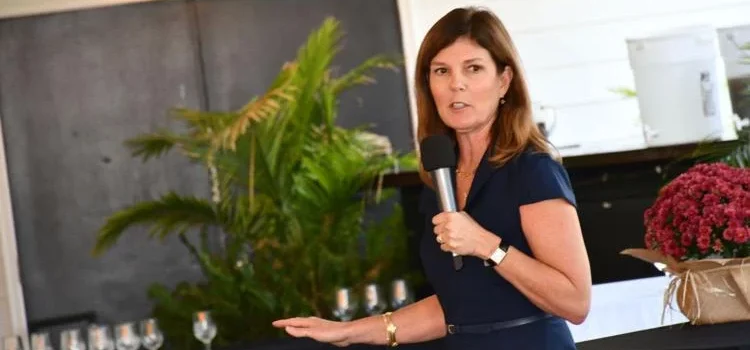Brandon Roberts, broberts@journalscene.com
Originally published in The Summerville Journal Scene on Nov 7, 2023
South Carolina Lt. Gov. Pamela Evette talked about the importance of education and a burgeoning workforce at the Greater Summerville/Dorchester County Chamber of Commerce’s annual Legislative Luncheon Tuesday, Oct. 31, at the Summerville Country Club.
Along with Evette, the 93rd Lieutenant Governor of South Carolina and the state’s first female Republican lieutenant governor, state legislators Sen. Sean Bennett, Sen. Sandy Senn, Rep. Chris Murphy, Rep. Gary Brewer and Rep. Robby Robbins spoke about adopted legislation and current legislation being considered in Columbia and what it could mean for the greater Summerville area.
Evette first spoke about the role South Carolina’s technical schools play in the future of the state’s commerce and economic development and efforts to get young people involved in the workforce.
“When I became lieutenant governor, along with the governor, we decided to use our platform or microphone to really talk about the technical schools, and what a big impact they have because everywhere I go, every business I talk to, relies on the workforce provided through our technical colleges,” she said. “When I first became lieutenant governor – this is kind of a daunting statistic – we only had 42% of our population that had secondary degrees or certifications, and with the amount of industry that we have in South Carolina, and continuing to come in, we should have been at like 71 or 72%. So, we really have a lot of ground to make up.”
Evette mentioned the importance of workforce scholarships and said they are “making all the difference” in the state’s employment numbers. Workforce Scholarships for the Future cover tuition and required fees at the state’s 16 technical colleges for South Carolina residents enrolled in a high-demand field such as manufacturing, healthcare, computer science and information technology, transportation, distribution and logistics, or construction. She said these scholarships give people a real opportunity to join and thrive in the workforce.
Employees with basic communication and problem-solving skills is also something businesses desire but have difficulty finding, she said.
“I fancy myself a business person, so I like to be out in the community,” she said. “I like to sit across the table from businesses. I like to figure out what we can do to really make businesses grow. As I travel around, I keep hearing, first and foremost from businesses, can you please teach soft skills in the classroom? We’re getting these great kids out of college and they don’t know how to talk. They don’t know how to solve problems. Can you just teach that?”
Evette then spoke about the importance of students learning fiscal responsibility, saying many young people “do not know the value of a dollar” or how long it takes to pay off loans.
“You can’t teach fiscal responsibility to somebody who’s never had a job because they have no idea what they have to give up to earn a dollar,” she said. “I started going around the state encouraging parents to get their kids working again. Our mom-and pop-companies need our kids to start working again. That’s why our favorite coffee shop’s not open on Sundays anymore and you can’t go get an ice cream cone after eight o’clock. There’s nobody to work.”
Evette said South Carolina’s small businesses and young adults need the experience of having a first job and she will be working with the South Carolina Department of Employment and Workforce (DEW) to focus on youth employment.
“Youth employment in South Carolina is the lowest it’s ever been,” she said. “And it’s not just here, it’s everywhere, and it’s not just everywhere in our country. When I was in Germany, I asked them what their three pain points were. It was energy, employee workforce and immigration – the same things we’re dealing with here in our country, they’re dealing with there. Getting those kids working is really a big deal.”
